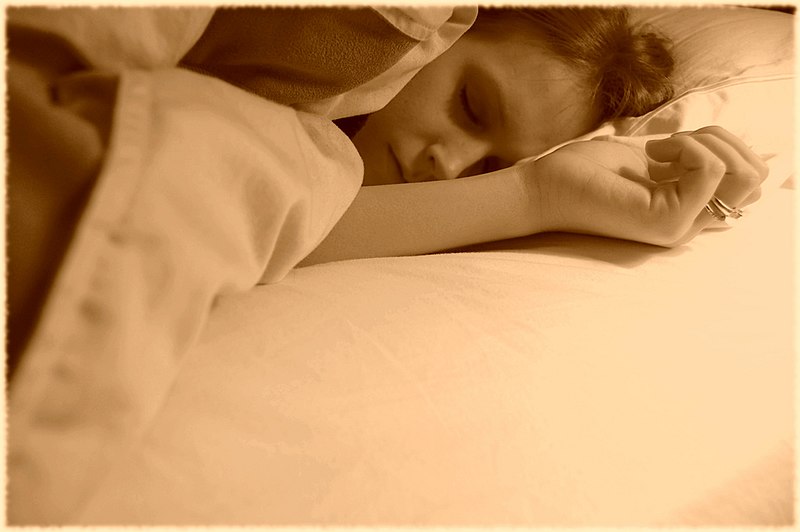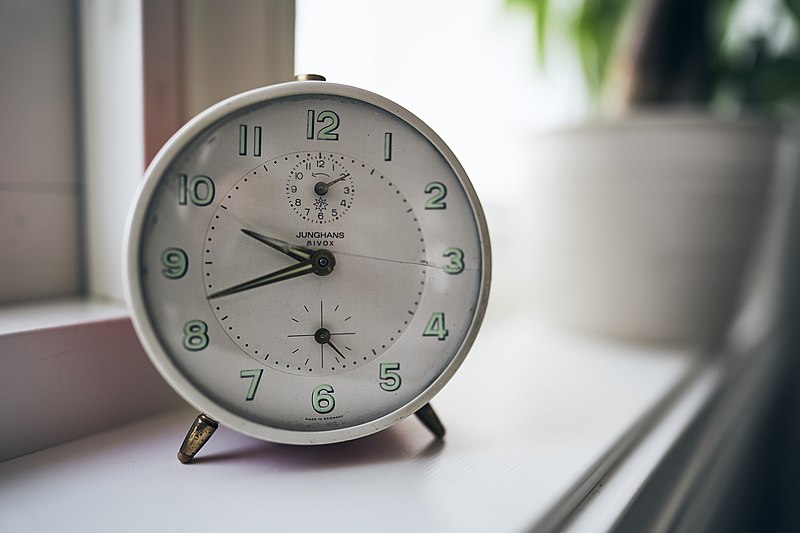
Most of us could do with a better nights rest, but what can you do to improve not just the length, but the quality of your sleep?
Calculate Your Bed Time!

It’s sensible to start by thinking about what time you need to go to bed. If you’re waking up at 6 and going to bed at midnight you’re never going to get a good nights sleep!
Once you’ve established an ideal bedtime for yourself, give yourself at least an hour before bed without screens. Research shows the light levels from using back-lit screens like phones, tablets, and tvs can really interfere with our quality of sleep.
Try to get a chapter or so of a book in during this time, but avoid thrillers or mysteries that keep you reading chapter after chapter – we’re trying to find our calm! You could also use this screen-free hour to do some light exercise like a gentle walk, stretching or yoga, or to keep on top of the housework.
Silence or Noise?
Work out if you need silence or noise to sleep. Personally, my brain won’t switch off in silence and I start thinking every thought I’ve ever had! But we’re all different. Most music streaming services have playlists designed to help you sleep – whether it’s relaxing classical music, ocean or rain sounds, or white noise.
If I’m really struggling I like to use the sleep meditation features provided by various apps like Headspace and Peloton, as well as Podcasts and music streaming services. These guided meditations help you to relax and are a great choice if you struggle to get to sleep, but are able to remain sleeping once you do.
If you share a bed or bedroom with someone who has conflicting sleep noise needs, you can buy headbands that contain speakers designed to wear during sleep to avoid getting tangled in your headphones or loosing an air pod. They’re also great for blocking out the sound of a snorer!
Darkness or Light?

Think about the lighting arrangement you need to get to sleep. I need total darkness, so I wear a padded eye mask for a comfortable nights sleep! This is also a cheaper solution than replacing your regular curtains for ones with black out linings.
Some people prefer to sleep with a lamp on, and there’s a range of night lights for grown ups including ones that project stars onto your ceiling and walls that will make you feel like you’re sleeping under the nights sky!
Switching Off
I often find the process of trying to sleep reminds me of things I need to remember to do, like write a birthday card or send an email, so it’s a good idea to keep a notebook and pen in your bedside table so you can get those thoughts down and stop thinking about them, safe in the knowledge you won’t forget when you wake up!
Fragrances

Try to cover all your senses – so now we can talk about scents. I personally just need things to smell clean and fragrance-free, but lavender pillow sprays and scented laundry liquids designed to encourage a good nights sleep exist!
Caffeine
Think about what you’re consuming before bed. We all know its not a good idea to drink caffeinated beverages on the lead up to bedtime, but you’d be surprised how early in the day you need to stop drinking coffee to avoid it interacting with your sleep quality.
Various caffeine-free teas are marketed at relaxation or sleep, including ones with Valerian and chamomile, which may help.
Temperature Control

Being too warm or cold can affect your sleep quality, so make sure you’re using an appropriate duvet tog for the weather. If you wake up congested in the winter, consider sleeping with the window slightly open for fresh air, and put an extra blanket on the bed.
Sleep Health
It’s really important to keep boundaries in place with your sleeping habits, wherever possible! Try to avoid eating or working in bed, as this prevents you from seeing your bedroom as a place of rest and relaxation! Having a good bedtime routine can help improve your sleep health, as your mind and body will get used to the before-bed cycle.
